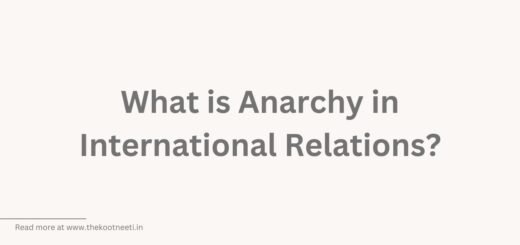Modernisation Theory in International Relations: Definition and Applications

In international relations, modernization theory is a perspective that explains how societies develop and progress over time. It is based on the idea that societies go through a process of social, economic, and political change that leads to the development of more advanced and complex forms of social organization.
According to modernization theory, societies progress through a series of stages, starting with traditional or pre-modern societies, and culminating in modern societies characterized by advanced technology, complex division of labor, and a high level of social and political organization. Modernization theory emphasizes the role of economic development and technological progress in driving social change and the advancement of societies.
In international relations, modernization theory has been used to explain the development and progress of countries, particularly in the post-World War II period. It has also been influential in shaping development policy and has been used to justify the promotion of economic development and political liberalization in developing countries. However, modernization theory has also been criticized for being Eurocentric and for promoting a narrow view of development that focuses on economic growth and technological progress at the expense of other social and cultural factors.
In international relations, modernization theory has been applied in a number of ways:
- As a predictive model: Modernization theory has often been used to predict the trajectory of development for different states and to identify factors that may facilitate or hinder the modernization process.
- As a normative framework: Modernization theory has also been used as a normative framework for policy-making, with the goal of promoting modernization in developing states.
- As a tool for understanding international relations: Modernization theory has been used to understand the relationships between states and to explain patterns of conflict and cooperation. For example, some have argued that modernized states are more likely to engage in cooperation and less likely to engage in conflict, while others have argued that modernization can lead to conflict due to the uneven distribution of resources and power.
- As a means of evaluating international relations: Modernization theory has also been used to evaluate the success or failure of international relations efforts, such as foreign aid or international development initiatives.


















